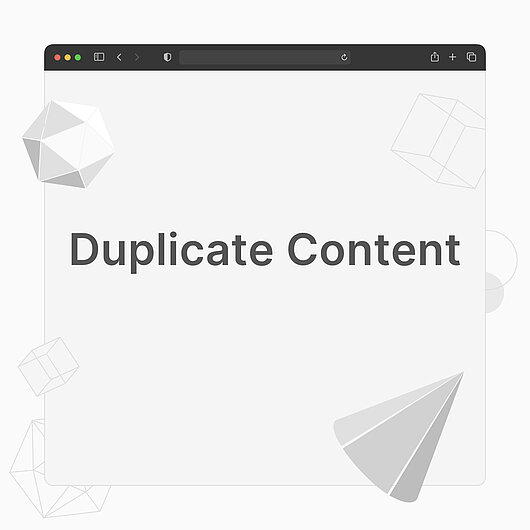- Why Us?
- Features
White Label
For SaaS Platforms & Agencies
Provide our complete analytics suite to your clients, directly within your own interface and with your/their own branding. Discover Analytics-as-a-Service and White Label Analytics. Great benefit, minimal effort.
- Pricing
- White Label
- Success Stories
- Partner
- ResourcesExpand Your Knowledge
Duplicate Content
TL;DR

Duplicate content refers to blocks of similar or exact texts placed across pages or domains, and it may be used to get more traffic or to manipulate the ranking in search engine result pages.
What is Duplicate Content?
Duplicate content refers to pieces of content across pages and domains that completely match other content on the web or within the same website (or the text is appreciably similar).
Why Should You Avoid Duplicate Content?
Most websites duplicate content on the pages in order to manipulate search engines to rank higher in the result pages (SERP) and get more traffic.
If a website contains multiple pages with largely identical content, there are several ways you can indicate your preferred URL to be indexed by Google - This is called canonicalization.
If Google perceives that a website has duplicate content aiming to manipulate the ranking, the site might get a penalty or be removed entirely from the Google index, in which case it will no longer appear in search results.
How to Avoid Duplicate Content on the Website?
There are multiple ways to address duplicate content issues and ensure that visitors see the content you want them to, but here are the most common to approach:
- Use 301s to smartly redirect users at the right page
- Be consistent and keep your internal linking steady and try to use just a single URL type (e.g., www.yourwebsite.com/page vs. www.yourwebsite.com/page or www.yourwebsite.com/page/index.htm.)
- Don't publish dummy pages! If there is no real content, do not publish placeholder pages, but you can use the noindex meta tag to block these pages from being indexed.
Minimize similar content. If there is similar content on multiple pages, try to extend the content, rephrase it, or merge it into one page.

